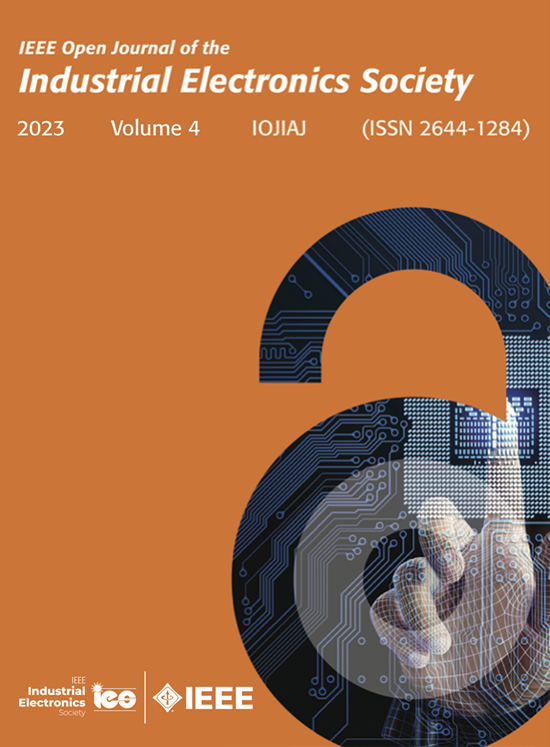Reliable DC Shipboard Power Systems—Design, Assessment, and Improvement
IF 4.3
Q1 ENGINEERING, ELECTRICAL & ELECTRONIC
IEEE Open Journal of the Industrial Electronics Society
Pub Date : 2025-01-20
DOI:10.1109/OJIES.2025.3532095
引用次数: 0
Abstract
Targeting a climate-neutral maritime sector drives the adoption of the all-electric ship (AES). While AESs can utilize both ac and dc shipboard power systems (SPS), a dc system offers advantages in efficiency, power density, and source synchronization. However, the enhanced network complexity of dc grids combined with the high penetration of power electronic devices and harsh environmental conditions can compromise the system's reliability. Therefore, this article provides an overview of the reliability aspect of dc-SPSs, addressing the power system design, adequacy assessment, and reliability improvement. First, the performance tradeoffs associated with the SPS design are examined, revealing how changes in the power system topology and dc bus structure impact the vessel's reliability along with other performance parameters. Second, a hierarchical reliability model framework is proposed for the adequacy assessment of dc-SPSs, considering the reliability from the component level up to the system level. To determine the system-level reliability, multiple probabilistic methods, including simulation and analytical models, are compared using a propulsion subsystem example. Finally, an overview of the reliability improvement strategies is provided, addressing methods at the system, device, and component level. These three topics combined aim to provide guidance in the design of future reliable dc-SPSs.可靠的直流船载电力系统——设计、评估和改进
以气候中立的海事部门为目标,推动了全电动船舶(AES)的采用。虽然AESs可以同时利用交流和直流船载电源系统(SPS),但直流系统在效率、功率密度和源同步方面具有优势。然而,直流电网网络复杂性的提高,加上电力电子设备的高度渗透和恶劣的环境条件,会影响系统的可靠性。因此,本文提供了直流数据中心可靠性方面的概述,解决电力系统设计,充分性评估和可靠性改进。首先,研究了与SPS设计相关的性能权衡,揭示了电力系统拓扑和直流总线结构的变化如何影响船舶的可靠性以及其他性能参数。其次,从组件级到系统级考虑可靠性,提出了一种分层可靠性模型框架,用于数据分析软件的充分性评估。为了确定系统级可靠性,以推进子系统为例,比较了多种概率方法,包括仿真模型和分析模型。最后,提供了可靠性改进策略的概述,在系统,设备和组件级别解决方法。这三个主题的结合旨在为未来可靠的dc-SPSs的设计提供指导。
本文章由计算机程序翻译,如有差异,请以英文原文为准。
求助全文
约1分钟内获得全文
求助全文
来源期刊

IEEE Open Journal of the Industrial Electronics Society
ENGINEERING, ELECTRICAL & ELECTRONIC-
CiteScore
10.80
自引率
2.40%
发文量
33
审稿时长
12 weeks
期刊介绍:
The IEEE Open Journal of the Industrial Electronics Society is dedicated to advancing information-intensive, knowledge-based automation, and digitalization, aiming to enhance various industrial and infrastructural ecosystems including energy, mobility, health, and home/building infrastructure. Encompassing a range of techniques leveraging data and information acquisition, analysis, manipulation, and distribution, the journal strives to achieve greater flexibility, efficiency, effectiveness, reliability, and security within digitalized and networked environments.
Our scope provides a platform for discourse and dissemination of the latest developments in numerous research and innovation areas. These include electrical components and systems, smart grids, industrial cyber-physical systems, motion control, robotics and mechatronics, sensors and actuators, factory and building communication and automation, industrial digitalization, flexible and reconfigurable manufacturing, assistant systems, industrial applications of artificial intelligence and data science, as well as the implementation of machine learning, artificial neural networks, and fuzzy logic. Additionally, we explore human factors in digitalized and networked ecosystems. Join us in exploring and shaping the future of industrial electronics and digitalization.
 求助内容:
求助内容: 应助结果提醒方式:
应助结果提醒方式:


